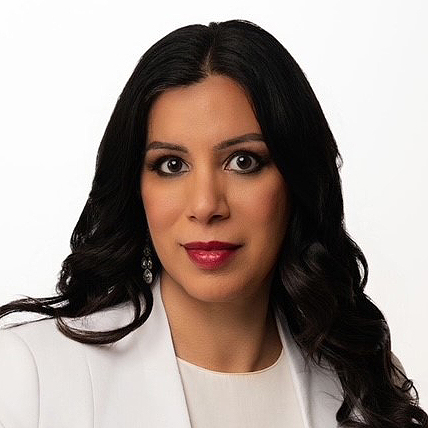Incorporating Digital Health and AI Into Cardiology Practice: An Interview With Ami B. Bhatt, MD, FACC

As a cardiologist, I have witnessed firsthand the rapid advancements in digital health and artificial intelligence (AI), and their potential to revolutionize patient care. These emerging technologies promise to enhance clinical decision-making, improve diagnostic accuracy and provide more personalized care. I was particularly inspired by Ami B. Bhatt, MD, FACC, ACC's Chief Innovation Officer, whose work in this field exemplifies the transformative power of AI in cardiology.
What drove your interest in digital technology and innovation?
When I started utilizing telemedicine in 2013, my patients with adult congenital heart disease were young patients who didn't know they needed to follow up with an adult cardiologist after age 18. They couldn't find many adult congenital heart disease specialists or maternal-fetal heart specialists. When I realized these patients weren't having follow-up appointments, I adopted telemedicine to connect with them readily and create a patient agency to help them advocate for themselves and become partners in their care.
Adopting telemedicine also allowed my patients to stay home to care for their kids, work hourly-waged jobs, attend school and avoid transportation. I felt they listened more closely when sitting on their couch rather than sitting in the clinic feeling stressed. Not everybody can be an adult congenital expert, but I can help triage and risk-predict using telemedicine and use those analytics to send them to higher centers or help them co-manage at home. These all piqued my interest in virtual/remote monitoring and data analytics, which led to the development of AI.
How will telemedicine and digital health change the cardiology field?
Our biggest problem in cardiology right now is access to care. We use episodic care in the office or at a hospital to treat chronic diseases. As we start to use digital health, the goal is providing at-home care to patients so we can reach many more people. Digital health helps solve issues such as lack of clinic space and workforce restraints.
When I first started telemedicine, I did it because my patients who lived far away would not want to come in. I learned very quickly that even the patients who lived right around the corner from the hospital wanted to use telemedicine for convenience and ease. If patients are hourly-wage workers or suffer from mobility problems, they usually prefer telemedicine over in-person visits. It is often not a distance-related issue, but more of a convenience-related issue. We should help them with their care by providing them with the necessary tools and information at home.
How is AI being implemented in cardiology?
There are three areas of AI in cardiology:
1. Administrative/Nonclinical Work: AI can do many things with algorithms and data analytics. We need more quality improvement projects to see if AI can make things better for the patient, clinician and health care system.
2. Clinical Work: When we sit with the patient, there is no way to know everything about them and their disease in 20 minutes. That is where computing power comes into play. We call it collaborative intelligence. The computing power of AI obtains the information I need, and I will fix it to obtain exactly what I need until I get the algorithm right and save that information. Then, when I see the patient in the clinic, I will know the patient's diagnosis, the guidelines for managing the diagnosis and the trend of disease progression in that patient. I can also provide all that information to the patient.
3. Image Recognition: AI will tell you what it thinks something is, and then you decide whether you agree or disagree, whether it's an action plan or pneumonia on chest X-ray. This is an area that needs significant prospective trials to understand its use.
What advice do you have for FITs and early career professionals interested in following your path?
One of the biggest things we can do is to champion others. It is important to receive all the support you need to maintain your professional and personal lives. Institutions should help understand and support this by giving flexibility in clinic times, and people should not be afraid to speak up and ask for help.

This interview was conducted by Nupur Shah, MD, a FIT at Atlantic Health System in New Jersey.
This content was developed independently from the content developed for ACC.org. This content was not reviewed by the American College of Cardiology (ACC) for medical accuracy and the content is provided on an "as is" basis. Inclusion on ACC.org does not constitute a guarantee or endorsement by the ACC and ACC makes no warranty that the content is accurate, complete or error-free. The content is not a substitute for personalized medical advice and is not intended to be used as the sole basis for making individualized medical or health-related decisions. Statements or opinions expressed in this content reflect the views of the authors and do not reflect the official policy of ACC.

